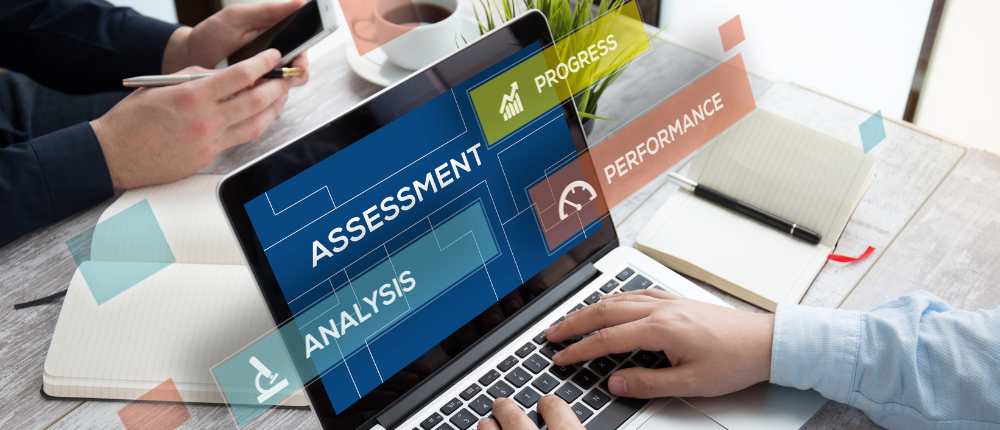Understanding IT Audits And Their Importance: A Comprehensive Guide
The exponential growth of the digital landscape has necessitated businesses across all sectors to incorporate sophisticated technologies into their operational architecture. This isn’t just a trend but a survival tactic in the fast-paced, fiercely competitive digital marketplace. As organisations embrace these advancements, they inevitably encounter a new frontier of complex IT systems. These complexities are integral to driving innovation and productivity, yet, at the same time, they present their unique challenges.
Parallel to the growth of technology is the alarming surge in IT threats, both in frequency and sophistication. Cyber threats range from malicious software and hacking attempts to sophisticated social engineering attacks and data breaches. This evolution of threats underscores the necessity for businesses to ensure their information’s security, integrity, and availability. IT audits, thus, become indispensable, serving as a robust tool that businesses can utilise to validate their systems’ reliability and resilience while ensuring the confidentiality of their data.
Understanding Information Technology Audits
Information technology (IT) audits are assessments of an organisation’s IT infrastructure, policies, and operations. These audits ascertain if the organisation’s IT environment aligns with its objectives and if it adequately protects its assets. IT audits also review whether systems are functioning efficiently and effectively.
IT audits can evaluate various technology assets, including hardware, software, data centres, and complex information systems. They also assess the controls and processes involved in managing these assets, offering invaluable insights into potential risks and areas of improvement.
Within this context, the role of IT audits in safeguarding information technology solutions is irrefutable. Information technology solutions, including hardware, software, and services, are at the heart of modern business operations. Without routine and rigorous IT audits, these solutions could be vulnerable to various threats, including cyber-attacks, data breaches, and even the rise of social engineering threats.
The Importance Of IT Audits
Ensuring the safety and integrity of your organisation’s IT environment is a top priority. IT audits serve this purpose in a multitude of ways. These audits help identify vulnerabilities in the IT environment and develop appropriate remediation strategies. Additionally, IT audits can objectively assess the IT controls in place and identify any gaps that need to be addressed.
Regular IT audits also ensure compliance with industry regulations and standards. Non-compliance can lead to severe penalties, including hefty fines and reputational damage. On the other hand, a strong compliance record can bolster an organisation’s credibility and competitive advantage.
The Rise Of Social Engineering Threats And IT Audits
In recent years, the cyber security landscape has witnessed a significant shift. The rise of social engineering threats, which exploit human psychology to gain unauthorised access to systems and data, has added a new dimension to the risk profile of many organisations.
Phishing, baiting, and pretexting are social engineering threats that can bypass even the most robust technical controls. Consequently, IT audits must also assess the effectiveness of an organisation’s human-related controls, such as user awareness and training programs, to effectively combat these threats.

The IT Audit Process: A Detailed Overview
The IT audit process is a comprehensive procedure comprising several key stages. First, auditors define the scope of the audit, outlining the systems, processes, and controls to be assessed. This is followed by the data-gathering phase, which entails collecting information from various sources, such as system logs, access records, and policy documents.
Next, auditors analyse the collected data, comparing it against established standards and best practices. This analysis can reveal vulnerabilities, inefficiencies, or non-compliance issues. Following this, the auditors compile their findings into an audit report, which provides an overall assessment of the IT environment, highlights any identified issues, and recommends actions for improvement.
Incorporating IT Audit In Risk Management Strategy
Incorporating IT audits is key to your organisation’s risk management strategy. Risk management identifies and assesses potential risks and then implements strategies to mitigate their impact. Given the critical role of IT in modern business operations, overlooking IT risks can be catastrophic.
IT audits are essential for identifying IT-related risks and assessing their potential impact on an organisation’s operations. By identifying these risks early, organisations can implement strategies to mitigate them and ensure their operations aren’t adversely affected.
Effect Of IT Audits On Organisational Efficiency
Another essential aspect to consider is the effect of IT audits on organisational efficiency. Well-managed IT systems are crucial for efficient business operations. They enable smooth communication, data management, and business processes. On the other hand, inefficient IT systems can hinder productivity, create frustration, and potentially lead to significant financial losses.
Through an IT audit, organisations can gain insights into the efficiency of their IT systems. The audit can identify bottlenecks, outdated systems, and inefficient processes that may hamper productivity. With this information, organisations can make informed decisions about system upgrades, process improvements, and other changes to enhance efficiency.

The Role Of IT Audits In Innovation
In today’s dynamic business environment, innovation is a key driver of competitive advantage. Leveraging technology to develop new products, improve customer service, or streamline operations can differentiate an organisation from its competitors. However, innovation also introduces new risks, particularly in the IT space.
As part of an IT audit, auditors can assess an organisation’s capacity to manage the risks associated with innovation. This can include evaluating the robustness of project management processes, the effectiveness of change management practices, and the appropriateness of risk mitigation strategies. In this way, IT audits can support an organisation’s innovation efforts while effectively managing risks.
Interplay Between IT Audits and Business Continuity Planning
Business continuity planning (BCP) is a critical activity that ensures an organisation can continue operating during a disruption or recover quickly afterwards. BCP generally involves:
- Identifying critical business functions.
- Assessing the risks to these functions.
- Developing strategies to maintain or quickly resume these functions in the event of a disruption.
IT audits can contribute significantly to an organisation’s BCP. For instance, an IT audit can assess whether an organisation’s IT systems are resilient enough to withstand disruptions or whether sufficient backup and recovery processes are in place. By integrating IT audits into BCP, organisations can enhance their preparedness for disruptions and minimise potential downtime.
The Significance of IT Audits in Mergers and Acquisitions
In the context of mergers and acquisitions (M&A), IT audits can be instrumental. They offer a thorough review of the IT environment of the target company, identifying any potential risks or issues that could impact the valuation or pose challenges during integration. Additionally, IT audits can assess the compatibility of the IT systems of the merging entities, enabling smoother integration post-acquisition.
Moreover, IT audits can reveal potential synergies, such as shared IT services or system consolidation opportunities, which could lead to cost savings. Hence, conducting IT audits as part of the due diligence process in M&A can help ensure a more successful and seamless integration.
Enabling IT Governance through Audits
IT governance is crucial to any organisation’s strategic framework, ensuring that IT investments align with business objectives, deliver value, and effectively manage risks. Here, IT audits serve as a fundamental component. They offer an objective assessment of the IT governance framework, examining its design, implementation, and effectiveness.
An audit can identify gaps in the governance structure, issues with accountability, or lack of alignment between IT and business strategies. By addressing these findings, organisations can strengthen their IT governance, enhancing performance, value delivery, and risk management.
IT Audits Facilitating Data Privacy and Protection
With data being a valuable asset for organisations, its protection is paramount. Data privacy regulations such as the General Data Protection Regulation (GDPR) and Australia’s Privacy Act have introduced stringent data handling and protection requirements.
IT audits can assess whether an organisation’s data protection measures comply with these regulations and effectively safeguard data from breaches. Audits also review whether privacy principles are embedded in the organisation’s processes and systems, promoting a data-conscious culture.

Assessing Cloud Security Through IT Audits
Cloud services have transformed organisations’ operations, offering scalable resources, cost savings, and improved productivity. However, migrating to the cloud also presents unique security challenges.
IT audits are critical in assessing an organisation’s cloud security posture. Auditors evaluate the security of the cloud infrastructure, review the effectiveness of access controls, and assess data protection measures. Audits can also review the organisation’s ability to manage cloud-specific risks, such as data sovereignty or vendor lock-in.
Influence Of IT Audits On Digital Transformation Initiatives
Digital transformation — integrating digital technology into all business areas — is a key focus for many organisations. Yet, it also presents numerous challenges, from managing change resistance to dealing with increased cyber security threats.
IT audits offer valuable insights into the management of digital transformation initiatives. Auditors can assess whether the organisation has an effective transformation strategy, adequate project management capabilities, and robust change management practices. They also review the organisation’s ability to manage the increased IT risks associated with digital transformation.
IT Audits In The Context Of The Internet Of Things (IoT)
The Internet of Things (IoT) — a network of interconnected devices — offers many benefits, from improved operational efficiency to enhanced customer experiences. Yet, IoT also presents unique security challenges, given the increased attack surface and the potential for physical harm.
IT audits are crucial for managing IoT risks. They can assess whether the organisation has appropriate controls to secure IoT devices, manage their lifecycle, and protect the data they generate. With IoT set to become even more prevalent, IT audits will be vital for ensuring IoT security.
IT Audits And Cybersecurity Incident Response Planning
Given cyber threats’ evolving nature, a robust incident response plan is vital. IT audits can evaluate your organisation’s preparedness for potential cybersecurity incidents. Auditors assess the design and effectiveness of your incident response plan, including its procedures for detecting, reporting, and resolving cyber threats.
Additionally, IT audits can test the plan through simulated incidents to ensure it works as expected in a real-life scenario. A robust incident response plan, verified by an IT audit, can minimise the impact of cyber threats and ensure a swift recovery.
Role Of IT Audits In Vendor Management
Your organisation likely relies on various third-party vendors for certain IT services or solutions. While this can bring numerous benefits, it can also introduce risks if the vendors’ IT security practices aren’t up to standard.
In this scenario, IT audits can review your vendor management processes. They assess the criteria you use to select vendors, how you monitor their performance, and how you manage associated risks. IT audits can ensure vendor management practices align with business objectives and effectively manage vendor-related IT risks.
IT Audits In Software Development And Testing
When developing and implementing software solutions, ensuring they meet the intended requirements, are secure, and don’t introduce any risks is important. IT audits can be invaluable in the software development and testing phases.
In the development phase, auditors can review the design and implementation of software to ensure it aligns with requirements and follows best practices. During testing, auditors can assess the comprehensiveness and effectiveness of the tests to ensure they identify any issues before deployment. This can minimise the risk of introducing flawed or insecure software into your IT environment.
Influence Of IT Audits On IT Service Management
IT Service Management (ITSM) is a strategic approach to designing, delivering, managing, and improving an organisation’s IT services to ensure they meet business needs. IT audits can evaluate the effectiveness of your ITSM practices, including incident management, problem management, and change management processes.
Auditors review whether these processes are documented, followed, and effective in delivering high-quality IT services. They also assess whether ITSM practices align with ITIL (IT Infrastructure Library) or other best practice frameworks, helping to ensure a high standard of IT service delivery.
Artificial Intelligence (AI) And IT Audits
AI technology is increasingly being used across various industries, offering automation, data analysis, and improved decision-making opportunities. However, AI also presents unique challenges and risks, from bias in AI algorithms to the potential misuse of AI technologies.
IT audits play a crucial role in managing AI risks. They can assess whether your organisation has the necessary controls to secure AI technologies, manage their lifecycle, and ensure their responsible use. IT audits can also evaluate whether AI technologies deliver the expected benefits and align with business objectives.
Conclusion
In an age where cyber threats are becoming more sophisticated and pervasive, IT audits have never been more important. They are essential tools for protecting your organisation’s IT environment, ensuring regulatory compliance, and mitigating the risk of cyber-attacks. As the digital landscape continues to evolve, a proactive approach to IT auditing will undoubtedly play a pivotal role in the future of IT risk management.












